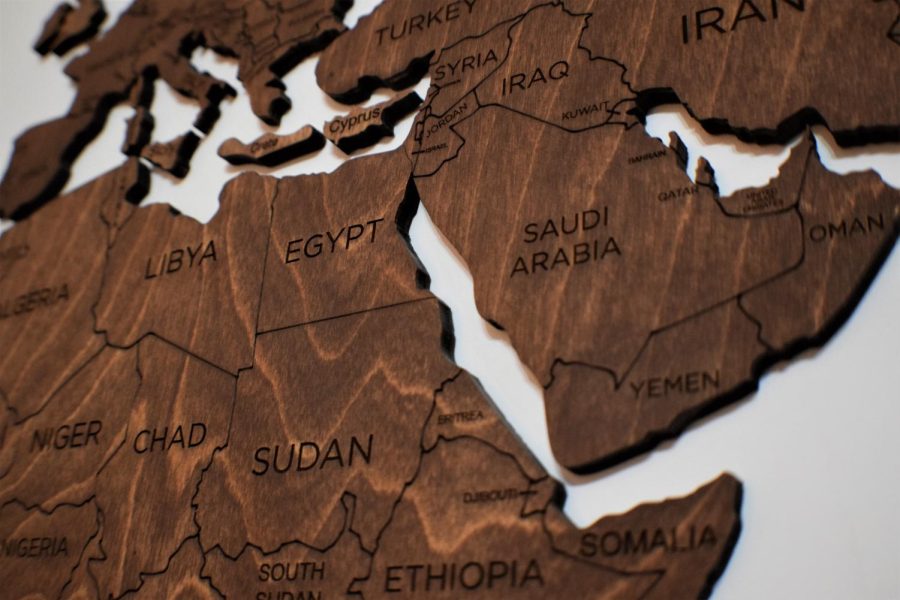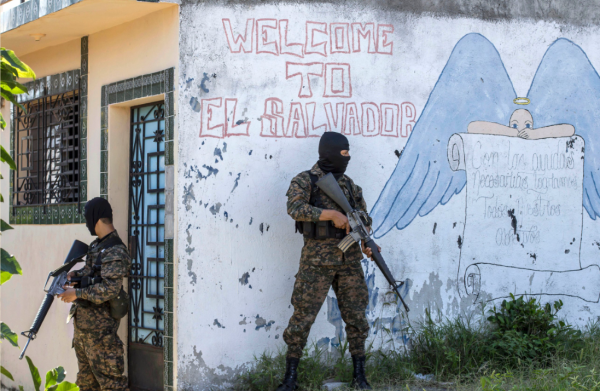SUDAN: RIVAL WAR GENERALS CLASH
Since the country gained independence, Sudan has been plagued by violence. A violent military clash between rival warlords, Mohamed Hamdan Dagalo (Hemetti), and Abdel Fattah al-Burhan, broke out on April 15th of 2023. Some have referred to it as the Third Sudanese Civil War.
Hemetti is the leader of the Rapid Support Forces (RSF) and the Janjaweed. The Janjaweed was hired by the former president of Sudan, Omar al-Bashir, to carry out an ethnic cleansing of non-Arab Sudanese people in the Darfur region of Sudan. The Rapid Support Forces was formed in 2013, and members are mostly Janjaweed militias. The Janjaweed forces are estimated to have 100,000 troops.
During the ongoing War in Darfur, the Janjaweed and Sudanese Armed Forces worked together to carry out genocides and raids on villages. Several petitions call for the U.S. government to recognize the Janjaweed forces as a foreign terrorist organization.
Abdel Fattah al-Burhan is a general of the Sudanese Armed Forces (SAF). In 2019, with the aid of Hemetti, the two overthrew the former President of Sudan, Omar al-Bashir, in a military coup. Omar al-Bashir had been the dictator of Sudan since 1989, he was replaced by the Transitional Military Council (TMC), headed by al-Burhan. Omar al-Bashir was handed over to the International Criminal Court (ICC) in 2019 by al-Burhan and Hemetti. The ICC issued a warrant for him in 2009 for genocide and war crimes in Darfur. He escaped prison in mid-April at the start of the conflict and is now being held in a military hospital.
After ousting al-Bashir, al-Burhan, with the aid of Hemetti and their forces, killed over 125 peaceful protesters who had gathered in the streets of Khartoum, the capital of Sudan, to protest for a civilian elected government council. Protesters died of stabbing, gunshot wounds, and burns or were drowned in the Nile River with rocks tied to them. Al-Burhan ordered an internet shutdown following the massacre.
Later that year, Sudanese political leaders and the TMC worked with the Forces and Freedom of Change (FFC) alliance and agreed to head towards a democratic form of government. The TMC would hand control of the government to the Sovereignty Council in November of 2021 after the 39-month planned transition to democracy period. However, in 2021, Al-Burhan led a military coup and overthrew the government. He reinstated the TMC and ousted elected government officials.
Currently, the country is engaged in a violent military clash between Hemetti and al-Burhan over control of the government. Hemetti is backed by RSF, Janjaweed forces, the Libyan National Army, the United Arab Emirates, and the Wagner group (the private military of Vladimir Putin). Al-Burhan is backed by the Sudanese Armed Forces (SAF) and Egypt.
On April 21st, a 72-hour ceasefire was initiated on Eid-al-Fitr; however, fighting continued. On April 24th, another 72-hour ceasefire was ordered but conflict persisted. On April 26th, another 72-hour ceasefire was remediated, with both sides sending representatives to the capital of South Sudan, Juba.
Both al-Burhan and Hemetti claim to have control of key locations in Khartoum. The Khartoum International Airport has become a battleground. A Turkish evacuation plane came under fire by RSF forces during evacuation efforts.
There are an estimated 16,000 American citizens in Sudan, most holding dual Sudanese and American citizenship. On April 22nd, the U.S. embassy and other diplomatic officials were evacuated. The United States has temporarily halted other evacuation efforts due to the risk while other countries still work to evacuate citizens. This has drawn criticism from the press and citizens.
The U.S. embassy to Sudan issued the following statement, “On April 22, 2023, the U.S. Embassy in Khartoum suspended its operations, and the Department of State ordered the departure of U.S. direct-hire employees and their dependents due to the continued threat from armed conflict in Sudan. The U.S. government cannot provide routine or emergency consular services to U.S. citizens in Sudan, due to the current security situation.”
U.S. citizens are provided options to evacuate to neighboring countries such as the Central African Republic, Chad, Egypt, Eritrea, Ethiopia, and South Sudan. U.S. citizens can also attempt to leave Sudan at Port Sudan, where ferries evacuate refugees to Jeddah, Saudi Arabia. Port Sudan is approximately 850 kilometers from Khartoum.
Saudi Arabia was the first country to start evacuation efforts in Sudan. According to an article published by the Saudi Gazette on April 27th, “119 Saudis among 2744 people evacuated so far from Sudan.”
Several hospitals have become the targets of attacks, and many Sudanese people rush to escape at Port Sudan. The Port evacuates small groups of people per day. After intense criticism, the U.S. started evacuation efforts on April 29th.
According to an article published by NBC News published on May 1st, “Armed drones escorted hundreds of Americans as they began their escape from war-torn Sudan on Saturday amid fierce fighting between the military and a rival paramilitary group.”
The US has organized bus convoys to get Americans from Khartoum to Port Sudan, where a Navy ship, the USNS Brunswick, arrived to evacuate citizens to Jeddah.
On May 3rd, the last British airplane left Sudan. Although Rishi Sunak, the Prime Minister of the UK, praised the successful evacuation operation, many relatives of citizens have been left behind. Once the British embassy building was shut down and evacuated, passports, visas, and documentation of hundreds of Sudanese people were left locked in the empty embassy building. Operation Kaveri, an Indian evacuation effort, has evacuated over 3,500 Indian nationals. India employed the Indian Navy and the ship INS Sumedha to Port Sudan.
Several organizations, including the UN and Red Cross, have started to provide medical aid to the more than five million residents of Khartoum who have been caught in the crossfire of the deadly clash. However, some aid deliveries have faced challenges as RSF and SAF forces have continued to attack locations in Khartoum despite the ceasefire that would allow Khartoum residents to flee.
According to DW news, “Six trucks belonging to the World Food Program were looted in Sudan’s western region of Darfur, despite assurances of safety and security.”
It is estimated that at least 100,000 people have already fled Sudan to neighboring countries. On May 2nd, Hemetti and al-Burhan agreed to a seven-day ceasefire that will help evacuation efforts. Yet thousands of citizens in Khartoum are killed every day the violence continues.
[This is still an ongoing conflict]

Hi! My name is Reet and this is my fourth year taking Journalism. I enjoy writing news articles and irony pieces.





